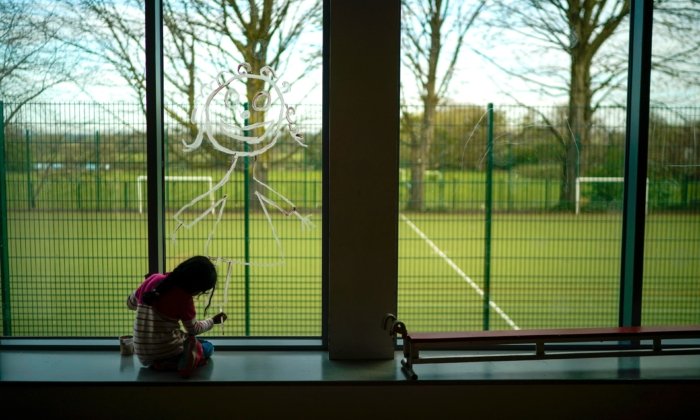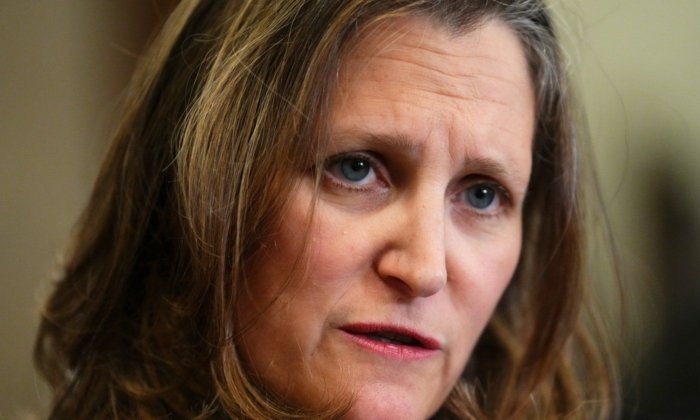Increase in Concerns Over Pupil Self-Harm Linked to Lockdown ‘Aftershocks’, Reveals Survey
School closures during the COVID-19 pandemic have created lockdown “aftershocks” that have contributed to a rise in pupil self-harm concerns, a survey has found.
The National Governance Association (NGA) found governing boards, trustees and academy committee members in England noting a rise in self-harm reports, with one governor saying there was a “high rate” of children self-harming.
It comes amid increased worry over safeguarding concerns since the beginning of the pandemic by school governing boards, with neglect, domestic abuse and bullying, including cyberbullying, highlighted as the top three issues.
The impact of school closures during lockdown has played a role in these trends, the NGA said as 71 percent of governing boards reported a rise in safeguarding issues when asked as part of 2022’s annual study.
Neglect and Abuse
NGA’s director of policy and communications Sam Henson says that the “aftershocks” from the pandemic continue to affect schools in 2023.
He says: “The survey identifies the challenges schools and trusts across England face and the strategic priorities governing boards set.
“While three years ago we grappled with the unprecedented tribulations of a global pandemic, only a naive observer would suggest that these pressures now only reside in the history books.
“The truth is, this year’s findings spotlight how schools and trusts continue to contend with a series of aftershocks, compounded by emergent obstacles.”
Neglect and domestic abuse were key concerns for primary schools, while online abuse emerged as a significant worry for secondary schools, the survey found.
Bullying, both traditional and cyberbullying, featured across both primary and secondary phases.
When asked to highlight their individual experiences as part of the survey, those who responded said “self-harm and other mental health concerns are our largest and most growing concern by far” and “there is also a high rate of students self-harming.”
Meanwhile, methods that schools and trusts are engaging in to support students’ mental health and wellbeing have declined since 2022, with almost all methods of support dropping by at least 6 percent, the survey found.
The increasing concerns around pupils’ mental health and wellbeing have placed a strain on external services which continues to be felt in schools and trusts across the country, Mr. Henson said.
Behaviour Challenges
Governing boards said their pupils are often faced with long waiting times and their school or trust has insufficient access to resources.
Behavioural challenges within schools and trusts have also seen a spike, as 68 percent of those who responded reported an increase in challenging student behaviour over the past 12 months.
This trend was particularly evident in secondary schools at 84 percent, all-through schools at 77 percent while 78 percent of alternative provisions schools reported challenging pupil behaviour.
Overall, more than half of all schools reported an increase in challenging behaviour.
Those who responded said: “The challenges of worsening behaviour in society following lockdown and the associated increase in exclusions.”
Another said, “The pressure the headteacher and senior leadership team are under due to finances, workload stress and burnout of staff, continued pressures after COVID with attendance and behavioural/pastoral issues.”
While another noted: “Our main issues in school are around attendance/behaviour.”
Other findings from the survey included that balancing the budget remains the top challenge for all school and trust boards with fewer than two in ten said they were financially sustainable in the medium to long term.
More than a third of respondents said their school buildings were not in good condition; and satisfaction with the government’s performance on education is at an all-time low among governing boards at just 9 percent.

Not Good Enough
Mr. Henson said the ever-changing post-pandemic educational landscape means schools need to “fortify” the safeguarding of children and young people.
“This year’s survey underscores the vital significance of sturdy policies, ongoing training and nurturing open channels of communication to tackle these concerns
Source link






